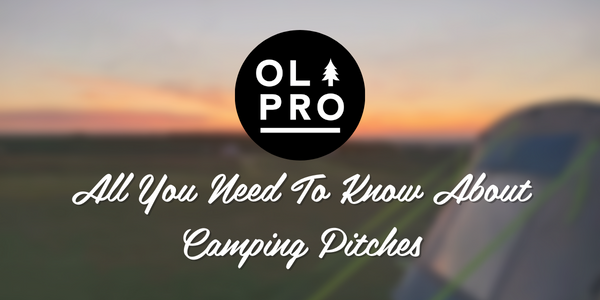Written by Tori Wilkes on 2nd Feb 2023
All You Need To Know About Camping Pitches
When booking your camping pitch, it can be quite overwhelming with the different varieties of camping pitches on offer. Most campsites offer different site options for additional prices such as waste disposal and electric and water hookups. Sizes and options may vary depending on the site. Below we’ve broken down the main site options and what we recommend taking to perfect your trip.
Grass Pitch
Grass pitches are usually the cheapest pitches on the site. Grass pitches are best for tents as they give you a comfy base and allow you to peg out your tent. The sizes of grass pitches may vary depending on the site, so we recommend you check with your campsite to be sure your set-up will fit before you go.
Most sites offer grass pitches with either no electricity, shared electricity or a private electric hook-up for an extra price. Grass pitches have their positives, for example, they are comfier if you are going to be sleeping on roll mats or plan on sitting on the floor. They’re also good as they mean you can peg your tent down with relative ease. Some negatives include that they can leave the base of your tent damp due to condensation and rain and that they can typically only be used in the summer months.
If camping on a Grass pitch we would recommend purchasing our Camping Mallet, a groundsheet, a tent peg puller and Camping Accessory Kit, which includes tent pegs.
Hardstanding Pitches
Hardstanding pitches are more expensive and usually come with a private electric hook-up, although we would advise that you confirm this with the site before you set off. Sizes of pitches may vary so this should also be confirmed with your site. Some hardstanding pitches offer water hook-ups and even private waste disposal, meaning you can pitch up and enjoy your holiday without having to fill a water butt and empty a toilet.
Hardstanding pitches are typically better for caravans and campervans as they offer a level ground for you to set up on. Some positives of a hardstanding pitch include a more level ground to pitch up on, typically electric hook-ups are available, year-round use and can sometimes be used for year-round storage. Some negatives include, nowhere to peg awnings or tents down, less comfy and maybe a smaller pitch than grass.
If camping on a hardstanding pitch we would recommend purchasing a Groundsheet to prevent the bottom of your awning or tent from ripping on the hard floor.
Gravel Pitch
Gravel pitches are a fabulous option for camping. They offer a comfier base than a hardstanding pitch and better water drainage than a grass pitch. Again, site sizes may vary so it’s best to check with the campsite before you set off. These pitches can typically come with electric hook-ups, fresh water and drainage for an extra cost, this can be confirmed with the campsite. There are lots of positives to a gravel pitch such as good drainage, a comfier base, year-round use, extra facilities available and the fact that tent pegs can be used. Some negatives include that the stones may be dirty and may find their way into your tent or camper.
If camping on a hardstanding pitch we would recommend purchasing our Camping Mallet, Groundsheet (to prevent the bottom of your awning or tent from ripping), a tent peg puller and hard-wearing tent pegs.
